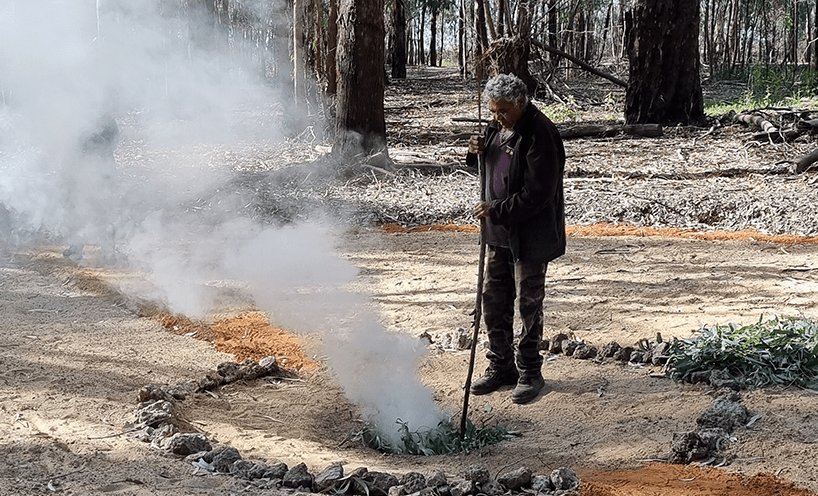- Published:
- Monday, 3 July 2023 at 9:00 am

By Regional Managing Lawyer Sonia Sawant from the Victoria Legal Aid Mallee office.
At Victoria Legal Aid we’re lucky to have a diverse workforce with many First Nations staff members and people from different cultural backgrounds.
Taking pride in our individual cultures and remaining curious about those of others is a mark of cultural capability. It means you understand that everyone has their own culture that shapes their perspective, experiences and way of life.
But we all have a responsibility to not only be conscious of other cultures, but to also break down our assumptions and biases.
Recently our team in Mildura organised on-country cultural awareness training at Nguukarrima Kulyparrana Culpra Station on Barkindji Country. It was conducted by Kulpa Mardita, a local Indigenous community engagement and consultancy service.
We extended the training to our local panel practitioners as well, allowing a diverse group to come together and have a fulfilling experience learning about country, participating in a smoking ceremony, learning about traditional and medicinal flora and fauna, and sharing our cultural journeys.
Not only did this experience help us bond, but it made us appreciate each other’s journeys. One of the group activities was to share a story of how we first became aware of First Nations cultures and history. That activity was so defining for me personally as I had to look back and examine my own journey through the years.

I began that journey when I first came to Australia as a seventeen-year-old from a country bursting with its own uniquely varied and vibrant culture (to put it mildly!). I was curious and eager to gain a better understanding of the history of this country and its First Nations peoples.
I learned about the Dreaming, the Rainbow Serpent and the Bunjil. The more I read, the more I wanted to know. Because I was aware of the vast differences that existed within my own culture, I appreciated differences in culture and experience among First Nations peoples and regions.
At the on-country training, I discovered that while I had come a long way in my learning, after hearing some of the other stories, I knew I still had a long way to go. Sharing and listening to stories helps make the team aware that each person has their own journey and that cultural learning is ongoing.
Cultural capability in the legal sector
As a legal sector, we should see this NAIDOC Week as an opportunity to learn about First Nations cultures and build our cultural capability.
Beyond merely knowing and accepting that other cultures exist, cultural capability is about understanding how cultural differences shape a person’s life. It’s also about finding common ground, building mutual respect and challenging our own views and biases.
In our sector, cultural capability can mean providing more responsive services to First Nations communities by having a better understanding of how clients’ personal experiences can influence their circumstances and interactions with the legal system.
I can think of quite a few examples where creating a safer space for First Nations clients to share their stories allowed me to better understand and convey their stories to the court.
Cultural capability also means building trust with First Nations communities by being an organisation that’s transparent, inclusive and culturally sensitive, while increasing First Nations employees’ confidence to bring their whole self to work.
Given the well-known overrepresentation of First Nations people in the legal system, it’s imperative that all organisations and departments that provide services in the legal sector receive cultural capability training. Without this, there’s a risk of having a significant lack of insight into the lives of the people we assist through our work.
NAIDOC Week offers each one of us the opportunity to reflect on our individual practices and consider ways we can continue to grow.
We should reflect, celebrate and show solidarity with First Nations peoples – the ones who have been generous enough to allow us and our descendants to live on their country.
More information
Read more about NAIDOC Week
Updated

